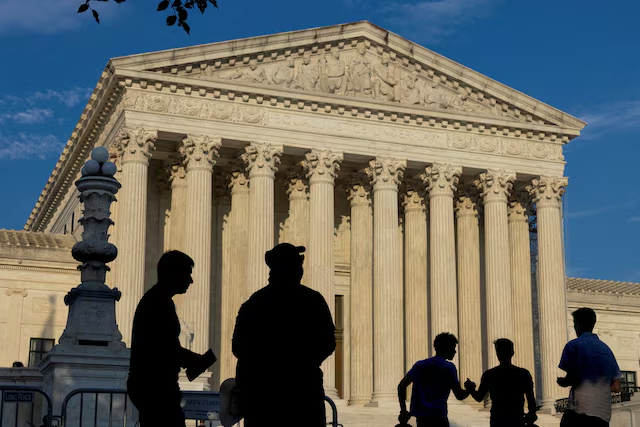News
U.S. Supreme Court Poised to Deliver a Major Blow to the Voting Rights Act

A landmark law born of the civil rights movement — the Voting Rights Act, championed by Martin Luther King Jr., passed by Congress, and signed by Democratic President Lyndon Johnson in 1965 — now faces what could be its greatest threat yet.
Nearly six decades later, the U.S. Supreme Court, with its 6–3 conservative majority, appears ready to weaken another key provision of the law after striking down a separate section in 2013.
On Wednesday, the Court heard arguments in a Louisiana redistricting case that could dramatically limit Section 2 of the Act — the provision that bars voting maps which dilute minority voting power, even without explicit proof of racist intent.
If the justices curb Section 2, the law will technically remain on the books, but its real-world force could all but disappear.
“If the Court further weakens Section 2, states and jurisdictions with long histories of discrimination could freely draw maps that systematically silence Black, Latino, Native, and Asian American voters,” said Sarah Brannon, deputy director of the ACLU’s Voting Rights Project.
In Louisiana, where Black residents make up roughly one-third of the population and white voters remain the majority, the Republican-controlled legislature recently added a second majority-Black congressional district after a federal judge found that the previous map violated Section 2 by including only one.
A group of white voters challenged the new map, arguing that it unconstitutionally prioritized race and violated the equal protection guarantees established after the Civil War to protect the rights of Black Americans.
While the Trump administration sided with the white voters, it did not call for Section 2 to be invalidated. Instead, it proposed a narrower framework that would discourage courts from “overemphasizing race” and give states more freedom to rely on “race-neutral principles,” such as protecting incumbent lawmakers.
Justice Department attorney Hashim Mooppan told the Court that the problem arises “not when race is considered at all, but when it subordinates traditional neutral principles.”
That approach would effectively replace the current Thornburg v. Gingles (1986) test — which determines when a map unlawfully weakens minority voting strength — with a much tougher standard. Critics argue that such a shift would make it almost impossible for minority voters to win future cases.
“If adopted, Section 2 cases would still exist on paper, but they’d be nearly impossible to win,” said Spencer Overton, a law professor at George Washington University. “Courts could dismiss them before trial, leaving legislatures free to entrench their power and sideline Black voters.”
Under the U.S. redistricting process, legislative boundaries are redrawn every decade after the national census. The proposed framework would require plaintiffs to provide new and often inaccessible data proving racial — rather than partisan — intent, a nearly impossible distinction in a country where over 80% of Black voters support Democratic candidates.
The Voting Rights Act was originally designed to dismantle discriminatory practices like literacy tests that once kept Black voters from the polls in the South. Congress strengthened Section 2 in 1982 by adding a “results test,” which outlawed voting rules that had a discriminatory effect, even without proof of intent.
But in the decades since, the Supreme Court has steadily narrowed the law’s reach. In 2013, it struck down the requirement that jurisdictions with histories of racial bias obtain federal approval before changing voting laws — and in 2023, it ended affirmative action in college admissions.
Now, in the Louisiana case, the Court could go even further. The state’s solicitor general, Benjamin Aguiñaga, argued that Section 2’s racial redistricting requirements are “unconstitutional.”
Justice Brett Kavanaugh, a pivotal vote appointed by Trump, appeared sympathetic to the Justice Department’s narrower framework, saying it could address many of the state’s concerns.
If the Court sides with Louisiana, legal experts say it could sharply reduce the number of Section 2 lawsuits and make it far harder to challenge racially biased maps — a shift that could favor Republicans, who currently hold a slim majority in the House.
According to an analysis by Fair Fight Action and the Black Voters Matter Fund, eliminating Section 2 could enable Republicans to redraw as many as 19 congressional districts nationwide in their favor.
Despite the uncertainty, the ACLU’s Brannon said advocates would keep fighting:
“Whatever the Court decides, we’ll continue to push for fair maps and protect every American’s right to vote.”
